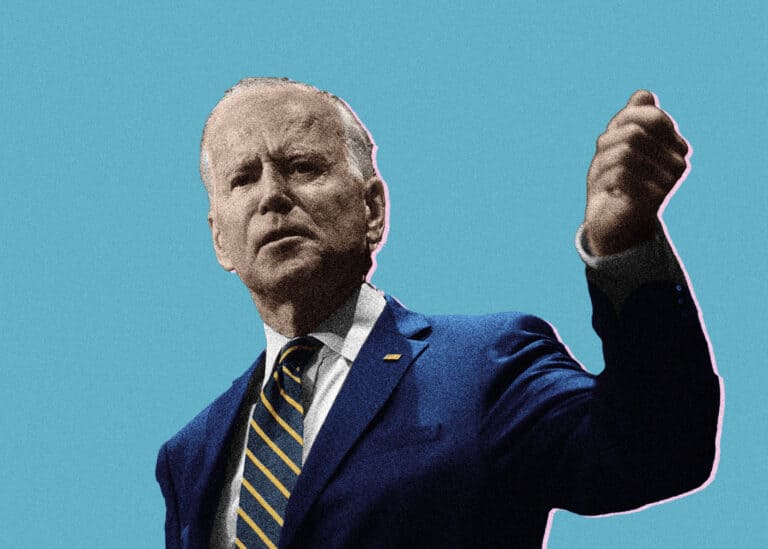Ross Slaughter is a student at Harvard Law School and a member of the Labor and Employment Lab.
Over the last year, labor advocates and scholars have intensified calls to expand the range of topics over which employers have a duty to bargain with their employees. Supporters of an expansive duty to bargain often point to recent protests by employees at Wayfair, Amazon, and Microsoft over their employer’s complicity in the Trump Administration’s immigration policies to illustrate that worker interests extend far beyond the traditional “terms and conditions of employment” that labor law makes mandatory subjects of bargaining. These examples suggest that empowering workers to bargain over a broader range of issues will further other progressive policy goals. But the National ICE Council’s recent attempt to wrest control of immigration policy from the incoming Biden administration is a good reminder that workers’ interests are heterogeneous, and that enabling employees to influence moral dimensions of their work won’t invariably lead to progressive outcomes.
In the waning days of the Trump Administration, Kenneth Cuccinelli, a senior official in the Department of Homeland Security, signed an agreement with the National ICE Council, the union that represents Immigration and Customs Enforcement (ICE) officers, agents, and employees, that would have given the union expansive input into, and possibly veto power over, parts of the agency’s decisionmaking. One clause of the agreement prohibited any modifications “concerning the policies, hours, functions, alternate work schedules, resources, tools, compensation, and the like of or afforded employees or contractors” from taking effect without the “affirmative consent” of the union. As the New York Times reported, the provision might have enabled the union “to argue that it can reject changes such as Mr. Biden’s recent order to focus on violent criminals and not prioritize other undocumented immigrants” because they affect the “policies” and “functions” of ICE employees.
The legally questionable agreement has since been rejected by the Biden administration, but it is telling that the Trump Administration, bent on stymying any attempt by President Biden to reverse course on immigration, found a ready and willing partner in the union. Apparently ICE agents, like many workers, care deeply about the mission, values, and direction of the organization they work for. The National ICE Council endorsed Donald Trump twice, and many of its rank and file members supported his hardline immigration policies. Trump’s former ICE director told the New York Times that agency morale was “flushed down the toilet” by President Biden’s first executive orders on immigration. After a federal court blocked President Biden’s pause on deportations, ICE agents quickly returned to their old ways, deporting hundreds of undocumented immigrants. It makes sense that the union, given the opportunity, would bargain for a greater say over ICE’s enforcement priorities.
The National ICE Council’s efforts to shape immigration policies — and to resist those it disagrees with — are a mirror image of the examples offered on this blog and elsewhere to demonstrate that workers should be allowed to bargain over much more than wages and hours. Indeed, Sharon Block and Ben Sachs point to Wayfair employees’ protests against their employer’s involvement with ICE as evidence that labor law should give workers a right to bargain about any “subject over which their employer [in its capacity as an employer] has control.” The resistance President Biden “may face from ICE’s rank and file” illustrates the same point, but with the opposite political valence. Even before Trump, ICE union leaders “strayed from their traditional roles” by advocating for right-wing immigration policies in addition to bargaining over “issues such as salary and benefits.” As Jacki Silberman explained in her series on organizing in High Tech, workers have an interest in influencing the “moral character” of organizations they work in, for better and for worse.
Undoubtedly, the National ICE Council is not representative of the broader labor movement. Like police unions, which became the subject of extensive criticism after the murder of George Floyd, ICE’s mission is fundamentally at odds with the goals and ideals of organized labor. ICE is a reactionary organization, deeply invested in perpetuating the violence and inequity of the status quo. Organizers and unions have argued that anti-immigrant polices like family separation and workplace raids are incompatible with worker solidarity. There are compelling reasons to limit the ICE union’s influence that do not apply to workers in other contexts.
But it would be a mistake to treat the problematic policy priorities of the ICE union as sui generis or confined to law enforcement. There are plenty of historical examples of private sector workers organizing to pursue goals that progressives disavow. During the first half of the 20th century, the American Federation of Labor championed restrictionist and xenophobic immigration policies, including national-origin quotas and literacy tests. In the 1970s and 80s, the AFL-CIO lobbied for laws sanctioning employers for hiring undocumented immigrants, laws that the Court and the NLRB have construed to allow employers to retaliate with near total impunity against undocumented workers attempting to organize. It was not until 1999 that the AFL-CIO reversed course and committed itself to working with and for undocumented workers, and, even today, some unions and union members view undocumented immigrants with animus.
Climate change is another issue where workers and their unions might diverge from the progressive agenda. While many unions are progressive on climate issues, at the state level unions “have had no problem blocking green initiatives if they decide they’re not in their members’ interests.” Trade unions in California organized to kill a bill that would have limited oil drilling in the state, while the Pennsylvania AFL-CIO and International Brotherhood of Electrical Workers support a Pennsylvania law that would prevent the state from joining a regional cap-and-trade program. While workers and their employers are more likely to be on the same page about climate change than immigration, it is another example of how expanding bargaining power might not translate into progressive victories.
None of this is to undermine the importance of enabling workers to bargain on the issues that they consider important to their employment. The Court’s narrow reading of the “terms and conditions of employment” denies workers a say in decisions that are critical both to their job security and, as the conduct of Wayfair and ICE employees illustrates, their self-conception. But the attempt of the National ICE Council to secure a veto over President Biden’s immigration agenda is a vivid reminder that workers may occasionally use the bargaining table to advance policy positions that progressives find repugnant. Those who support an expansive duty to bargain should be clear that empowering workers is important in itself, not because they expect it to consistently produce more progressive outcomes.










Daily News & Commentary
Start your day with our roundup of the latest labor developments. See all
July 4
The DOL scraps a Biden-era proposed rule to end subminimum wages for disabled workers; millions will lose access to Medicaid and SNAP due to new proof of work requirements; and states step up in the noncompete policy space.
July 3
California compromises with unions on housing; 11th Circuit rules against transgender teacher; Harvard removes hundreds from grad student union.
July 2
Block, Nanda, and Nayak argue that the NLRA is under attack, harming democracy; the EEOC files a motion to dismiss a lawsuit brought by former EEOC Commissioner Jocelyn Samuels; and SEIU Local 1000 strikes an agreement with the State of California to delay the state's return-to-office executive order for state workers.
July 1
In today’s news and commentary, the Department of Labor proposes to roll back minimum wage and overtime protections for home care workers, a federal judge dismissed a lawsuit by public defenders over a union’s Gaza statements, and Philadelphia’s largest municipal union is on strike for first time in nearly 40 years. On Monday, the U.S. […]
June 30
Antidiscrimination scholars question McDonnell Douglas, George Washington University Hospital bargained in bad faith, and NY regulators defend LPA dispensary law.
June 29
In today’s news and commentary, Trump v. CASA restricts nationwide injunctions, a preliminary injunction continues to stop DOL from shutting down Job Corps, and the minimum wage is set to rise in multiple cities and states. On Friday, the Supreme Court held in Trump v. CASA that universal injunctions “likely exceed the equitable authority that […]